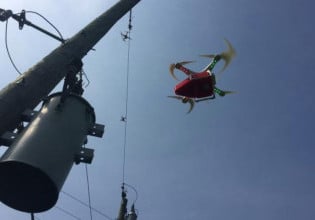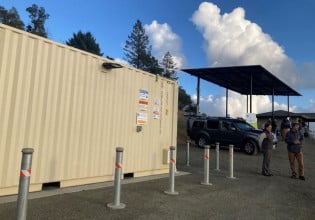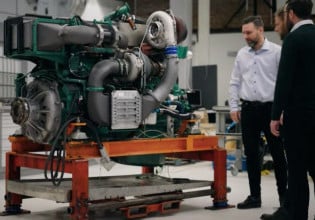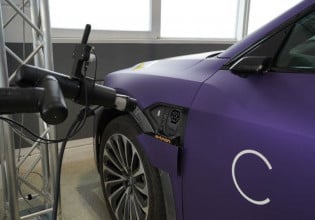Vishay Announces New Ultra-High-Precision Z-Foil Four-Resistor Network
Vishay Intertechnology, Inc. announced the new SMNZ ultra-high-precision Z-Foil four-resistor network, which provides a low absolute TCR of ±0.05ppm/°C from 0 to +60°C and ±0.2ppm/°C from 55 to +125°C, a PCR tracking ("ΔR due to self heating") of 5ppm at rated power, a tolerance match of 0.01%, and a load life ratio stability of 0.005%.
The new SMNZ resistor network is built on Vishay’s "Z- foil" technology, which is claimed to provide a significant reduction of the resistive component’s sensitivity to ambient temperature variations (TCR) and applied power changes (PCR). Z-Foil is said to improve stability by an order of magnitude compared to any other resistor technology, allowing designers to guarantee a high degree of accuracy in fixed-resistor applications.
The SMNZ resistor network combines four independent Bulk Metal® Z-Foil resistors in a single, surface-mount JEDEC MS-012 package with a 50-mil lead pitch. A large variety of resistance ratios is available. Said to offer better performance and more efficient use of board space than discrete resistors and matched sets, the SMNZ can be used independently or as divider pairs.
Applications for the new SMNZ resistor networks will include instrumentation and differential amplifiers, bridge networks, radio arms in bridge circuits, medical and test equipment, and military and aerospace systems.
The SMNZ device has a load-life stability of ±0.005% for 2000 hours at 70°C; a resistance range of 100 to 10kΩ per resistor; a power rating of 0.4W (or 0.1W per resistor) at 70°C; and current noise less than -40dB. It offers a fast rise time of 1.0ns without ringing and features a non-inductive, non-hot-spot design. The SMNZ device offers what is claimed to be the utmost in ESD immunity, withstanding electrostatic discharges exceeding 25kV, for increased reliability.
Samples and production quantities of the SMNZ resistor network are available now via Vishay’s Fastlane Prototype Service, with lead times from two to five days for prototype samples and six weeks for production orders.






